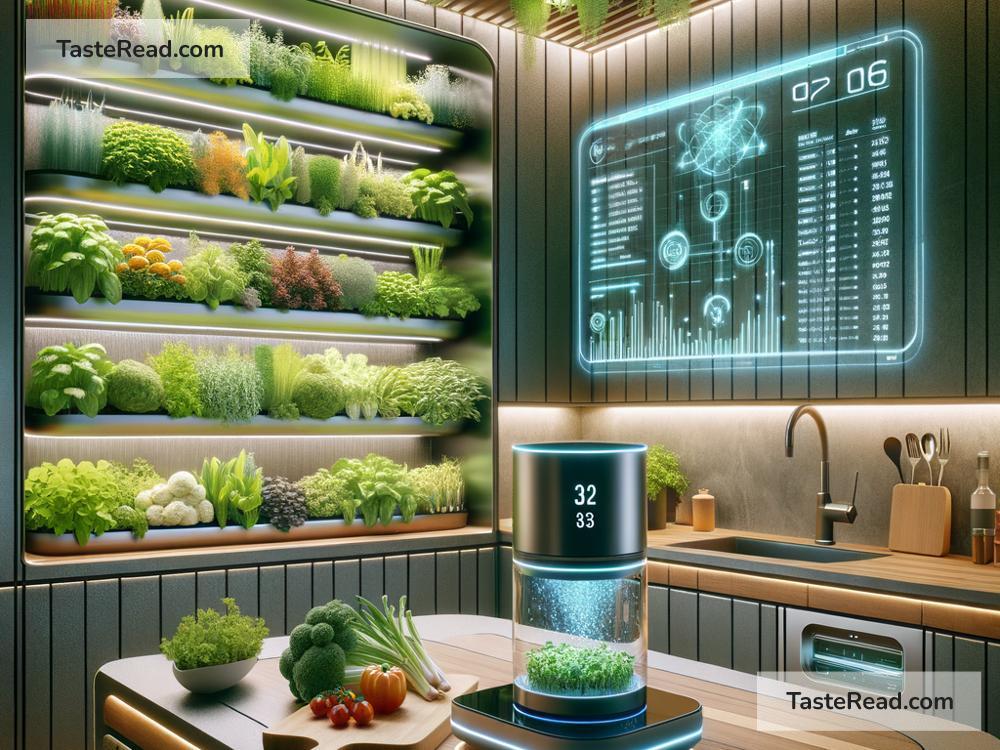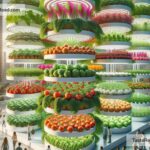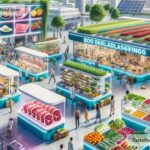The Future of Food and Holistic Health: Nourishing Our Bodies and Minds
Food is more than just something we eat to survive. It shapes how we feel, how we think, and how we live our lives every day. As the world rapidly changes, the way we grow, prepare, and consume food is also transforming. And beyond just food, the holistic view of health—which covers physical, mental, and emotional well-being—is becoming increasingly important. So, what does the future hold for food and holistic health? Let’s explore this exciting journey.
A Shift in How We Grow Our Food
One of the biggest changes in the world of food is innovation in farming. Traditional farming methods that rely on large plots of land and water are becoming less sustainable for our growing population. Climate change, soil degradation, and resource shortages push us to think differently about how we produce food.
Vertical farming and hydroponics are leading the way. Imagine farms inside tall buildings, where crops are grown on stacked shelves using nutrient-rich water instead of soil. These methods save space and water while producing fresh produce year-round. In addition, lab-grown meat, created from animal cells rather than whole animals, could reduce the environmental impacts of meat production while providing ethical solutions for those who care about animal welfare.
Plant-based alternatives are also evolving. Foods like plant-based chicken and cheese are becoming better in taste, texture, and variety. This shift toward sustainability doesn’t just help the planet—it benefits our health, too. Plant-focused diets are often linked to lower risks of heart disease, obesity, and diabetes.
Smart Food Powered by Technology
Think of a world where food is not only delicious but also tailored to your body’s unique needs. That’s where personalized nutrition and technology come in. Wearable devices and phone apps now track your health, suggesting what nutrients you need based on your activity, sleep patterns, and genetics. For example, someone who often feels tired might get recommendations for iron-rich foods or vitamin B12 supplements.
In the future, we might see foods fortified with specific vitamins or nutrients designed precisely for each person. Imagine a cookie that actually helps you stay energized or a snack that improves your focus during work hours. Technology is creating a closer link between food and self-care.
Additionally, 3D printing technology is changing food production by offering customized shapes, textures, and flavors. This could revolutionize school lunches, provide easy-to-swallow food for the elderly, or even create delicious meals in space during long missions to Mars.
The Importance of Gut Health
As science digs deeper into health, researchers have discovered that our gut—the system responsible for digestion—plays a much bigger role than we thought. Believe it or not, the gut is connected directly to our brain. This means the food we eat can impact more than just physical health; it can influence mental well-being, emotions, and even decision-making.
Probiotic-rich foods like yogurt, kimchi, and kombucha are good for gut health and becoming more popular. These foods help maintain a healthy balance of bacteria in the gut, which can improve digestion, boost mood, and support overall immunity.
In the future, we might see more focus on food that nurtures gut health. Scientists are exploring how personalized diets and targeted probiotics can treat problems like anxiety, depression, and bloating. Food will increasingly become medicine, supporting not only the body but also the mind.
Food as Part of Holistic Health
Holistic health means looking at our wellness as a whole—our physical, mental, emotional, and even spiritual health all connected. In the future, food will play a greater role in holistic health. For example:
-
Mood boosters: Certain foods, like dark chocolate, bananas, and nuts, are already known to help boost mood. Future diets might include foods designed to fight stress or improve mental clarity.
-
Energy optimization: Instead of quick fixes like caffeine or energy drinks, future food will focus on sustained energy sources, keeping us fueled all day without crashes.
-
Mindful eating: As life gets busier, people are recognizing the importance of eating mindfully—taking time to chew, taste, and enjoy meals without distractions. This not only improves digestion but also fosters a stronger connection between food and happiness.
Sustainability and Community
A major trend shaping the future of food is sustainability. People are becoming more aware of how their eating habits impact the planet. Local farming, community-supported agriculture (CSA), and zero-waste cooking are gaining momentum. Supporting local farmers and reducing food waste are ways to help the environment while enjoying fresher, healthier meals.
Furthermore, technology is bridging the gap between communities and food. Apps for sharing surplus food, swapping recipes, or learning about seasonal produce are growing in popularity. Food in the future won’t just be about individual health—it will be about collective well-being.
Final Thoughts
The future of food and holistic health is bright and exciting. With advances in farming, technology, and gut health, we can expect food to nourish not only our bodies but also our minds. Sustainable practices and personalized nutrition will help us live healthier, happier lives while caring for the planet. And as we embrace holistic health, we’ll recognize the powerful connection between what we eat, how we feel, and how we thrive.
So, let’s look forward to a future where food isn’t just a necessity but a source of fuel for a better life—inside and out.


